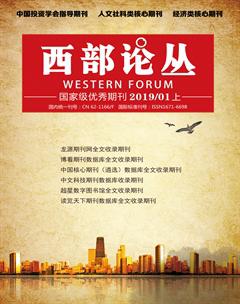A Study on the Effectiveness of Teacher’s Corrective Feedback
彭媛媛
Abstract: Truscott (1996) pointed that grammar correction is not helpful and even harmful for improving students writing accuracy, researchers represented by Ferris opposed views of Truscott by plenty of experiments. Based on previous studies, the present study gave a further discussion about the effects of teachers written feedback on English writing accuracy of junior high schools. This research aims to explain the definition of direct written feedback and indirect written feedback and summarize the previous studies about teachers written corrective feedback home and abroad, pointing the problem and reflection of current researches.
Key Words: Direct Written Feedback Indirect Written Feedback English Writing
In the research of EFL writing, Truscott(1996)pointed that theres no place for grammar correction in writing courses. These claims have resulted in amount of debate at some published articles and empirical studies for many years. Scholars represented by Ferris opposed views of Truscott. They claimed that his arguments were premature and effective error correction does help at least some learners improve their language accuracy according to the rapidly growing research.
1. Definition of Corrective Feedback:
As regards the corrective feedback, there are various definitions. In many researches, similar terms like“corrective feedback”,“negative feedback”,“error correction”refer to the same notion. Corrective feedback has been defined as “any indication includes various responses that the their use of the target language is incorrect” by Lightbown and Spada(1999:171-172). Corrective feedback takes the form of responses to text which contains an error. Negative feedback refers to teachers identification of errors and it provides students with information about the wrong utterance. Error correction has“narrower meaning, referring to attempts to deal specifically with linguistic errors.
2. Previous Studies on the Effectiveness of Written Corrective Feedback:
Whether written corrective feedback can improve students writing accuracy has been remained as a controversy for a long time. For one thing, many researches claims that corrective feedback is useless as a way of improving students writing accuracy. Truscott (1996) argued that grammar correction has no place in writing course and should be abandoned by teachers. And Truscott (2007) concludes that "correction has a small harmful effect on students' ability to write accurately and that we can be 95% confident that if it actually has any benefits, they are very small." In Sheppards (1992) research, no remarkable difference was found between the two groups receiving grammar correction and content feedback respectively in writing ability.
On the other hand, numerous studies showed the effectiveness of teacher written corrective feedback. In Fathman&Whalley;s (1990)research, the students from college were segmented into four groups receiving four types of feedback respectively. The results showed that groups with feedback on form and combination feedback had better writing accuracy than groups who received feedback on content or no feedback. Chandler(2003) made a comparison between the group one who were required to correct their errors underlined by the teacher and group two who receive no corrective feedback. The results indicated that the writing accuracy of group one got a significant improvement than group two.
3. Critique of Previous Studies
Reviewing the previous studies, it can be found that there are some deficiencies in their studies.Firstly, the English proficiency level of the participants is single, which makes it difficult to assess the value of the claims about the effectiveness on written accuracy. Second, the time of experiment is too short that it is hard to judge which types of written corrective feedback is better.
References
[1] Chandler, J. 2003. The efficacy of various kinds of error feedback for improvement in the accuracy and fluency of L2 student writing[J]. Journal of Second Language Writing; 12, 267-296.
[2] Ellis, R. 1994. The Study of Second Language Acquisition[M]. Oxford: Oxford University Press.
[3] Ferris, D. 1997. The influence of teacher commentary on student revision[J]. TESOL Quarterly, 31, 315-339.
[4] Sheen, Y 2007. The effects of focused written corrective feedback and language aptitude on ESL learners' acquisition of articles[J]. TESOL Quarterly, 41, 255-283.
[5] Truscott, J. 1996. The case against grammr correction in L2 writing classes[J]. Language Learning, 46, 327-369.

